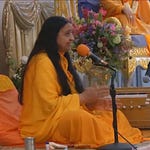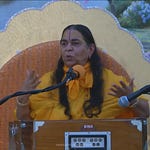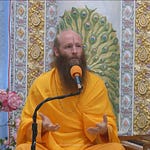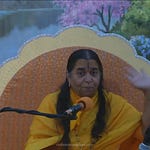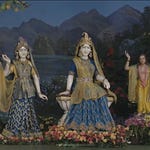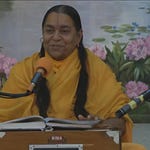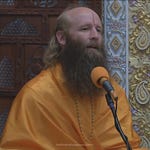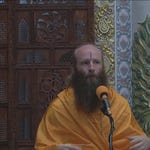The Vedas further clarifies in a mantra (verse),
नायमात्मा प्रवचनेन लभ्यो न मेधया न बहुना श्रुतेन।
यमेवैष वृणुते तेन लभ्यस्तस्यैष आत्मा विवृणुते तनूं स्वाम् ॥
nāyamātmā pravacanena labhyo na medhayā na bahunā śrutena |
yamevaiṣa vṛṇute tena labhyastasyaiṣa ātmā vivṛṇute tanūṁ svām ||- Kathopanishad 1.2.23
(It is) related to Krishna Yajurved in which Bhagwan (God) says,
“Look, you cannot find Brahm by listening to discourses or applying to your intellect. You may listen a lot to the scriptures and Ved (Hindu sacred text) but you will not find Him. When a soul surrenders to God, then God bestows His grace upon that soul and gives him His power. Such a soul can know God. In other words, the Ved is saying that God gives His power to another. Now you must have understood how God makes a soul great? He has unlimited powers - with those powers He does this work.
Let us look further. I explained that He is the greatest, and He makes others great, and I also told the reason for this. He has such powers. He does this work through these powers.
(Once) there was a Jagadguru in our country. He said that Brahm (formless God), Parmatma (God as supreme Soul) or Bhagwan (form of God with various Divine attributes) doesn’t have any Divine powers because it is just a Divine existence.
The first verse of Brahm Sutra is,
अथातो ब्रह्मजिज्ञासा ।।
Athāto Brahmjigyāsā.- Brahma Sutra 1
In his commentary on the Brahm Sutra he defined God as both omniscient and all powerful. Later he wrote in his commentary and changed his mind. He said,
“No! This is not correct!”
There are two kinds of descriptions of the verses of the Ved - God is formless and with form; He has no virtues, and He has virtues; He has no attributes, and He has attributes. This Jagadguru said that the verses that refer to non-dualism say the soul and God are one, the soul and God are not two personalities, the soul itself is God. He said these non-dual verses are the prime verses, meaning they are correct. He said that the Vedic verses that say God and soul are separate and unimportant and unacceptable.
He was asked, “How can you say this? Has this been written somewhere in the Ved? What is the basis for saying this?” He gave his point of view; He said the verses that say God and the soul are one came after those verses that describe that God and the soul are separate. And whatever comes afterwards is correct. What kind of philosophy is this that whatever comes later is correct? The Ved says that all the verses are indicating towards the personal form of God.
Rishi Asthmba wrote that not even half a word is unimportant in the Ved. If someone thinks otherwise, he is crazy.
In this way, it is proven that God also has Divine attributes, virtues, and form.


